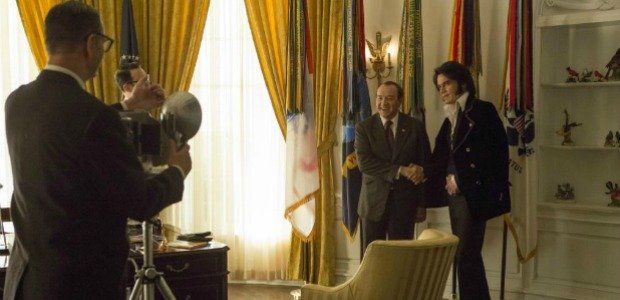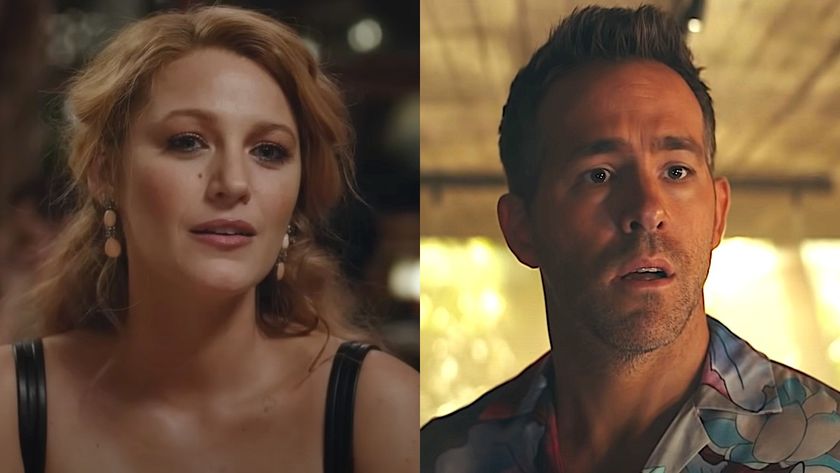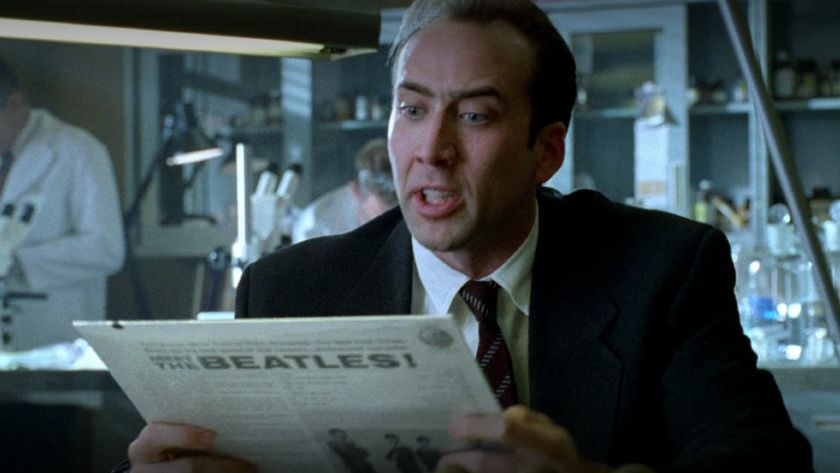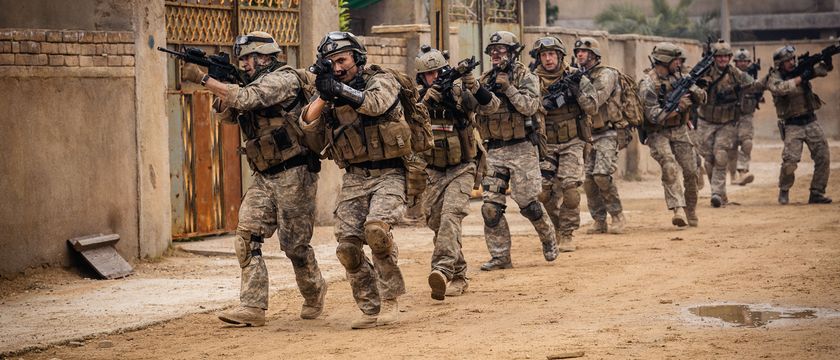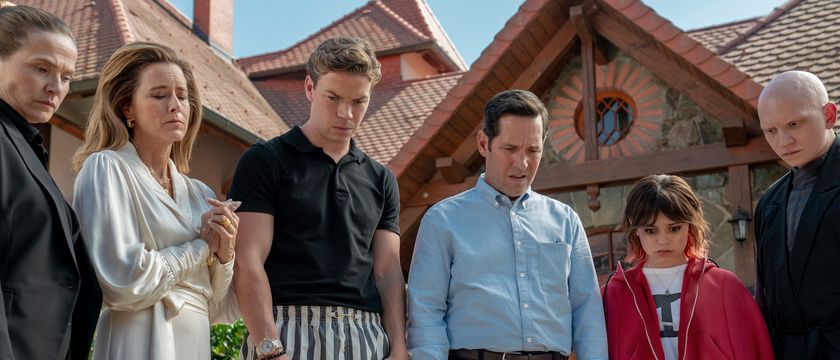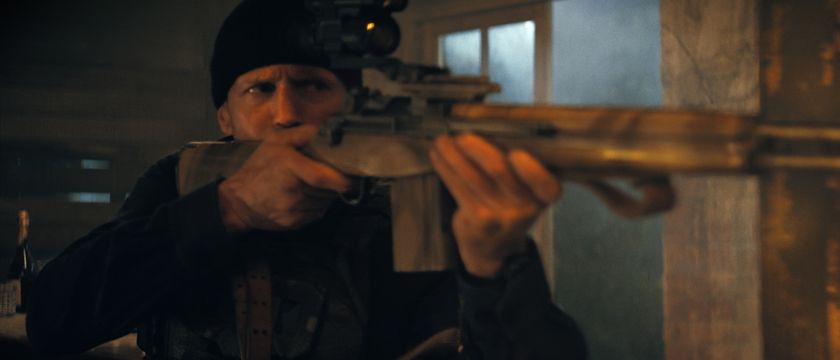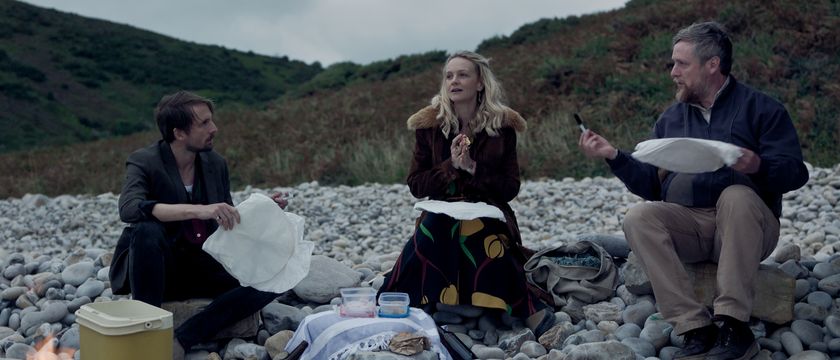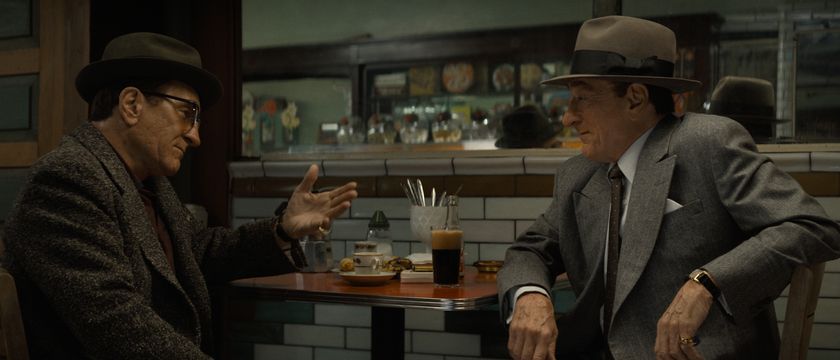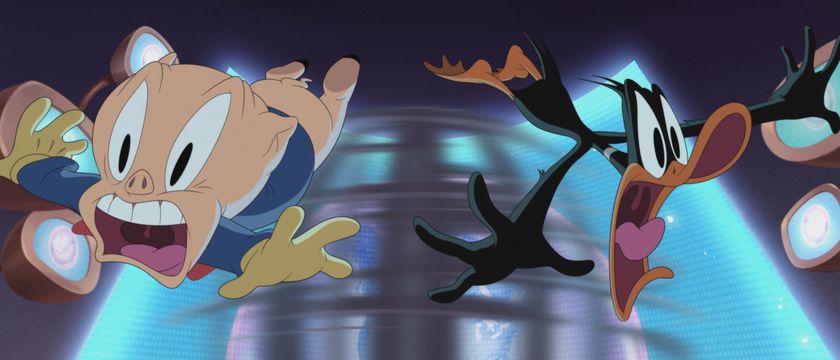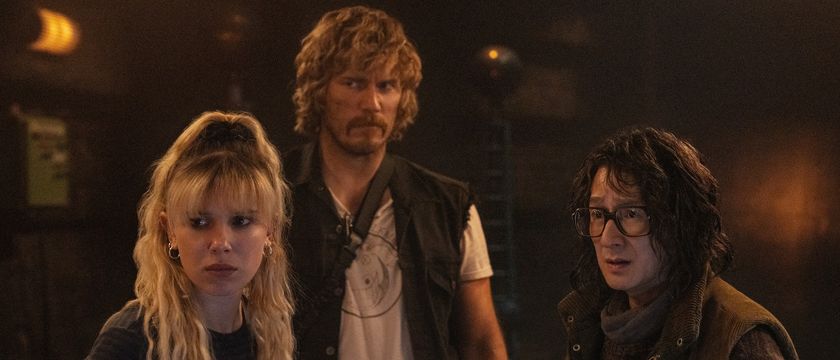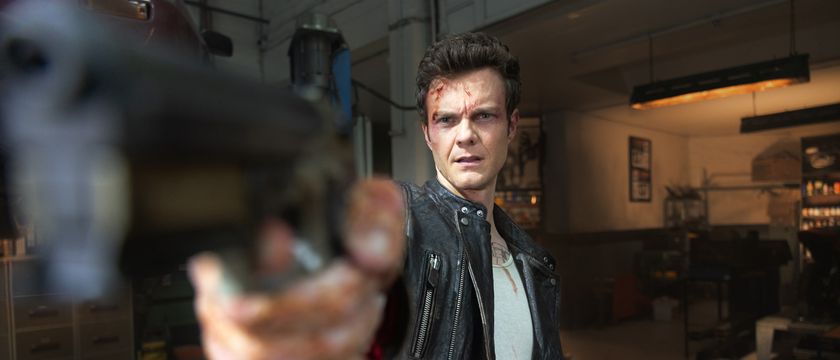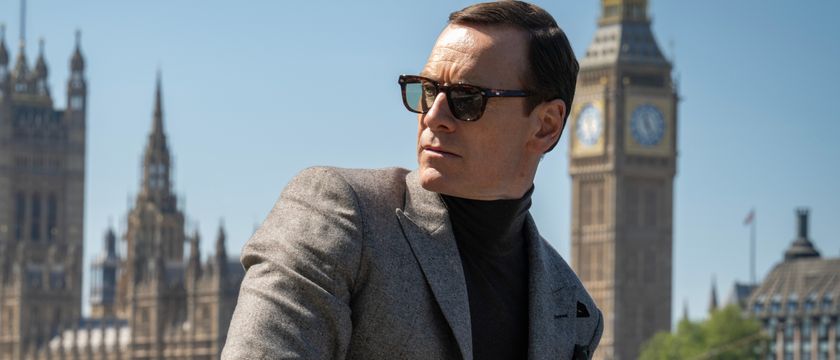Based on one of the most famous pictures of all time, Elvis & Nixon shouldn’t really work. Proudly fictional, it builds its story around the innately funny image of Elvis Aaron Presley and the 37th President Of The United States Of America, Richard Nixon, which was taken on the morning of December 20th, 1970, and constructs a narrative that is both entertaining, realistic, honest to the characters, and almost completely false.
Elvis & Nixon manages to tow this delicate line, and it works because writers Joey Sagal, Hanala Sagal, and Carey Elwes, as well as director Liza Johnson, play up just how ridiculous a situation it was, while at the same time acknowledging that despite Elvis’ iconic status and Richard Nixon’s position as President they were still regular Joes. They even allow some room to explore and make educated guesses about their fears and thoughts in such a way that, in all likelihood, the next time you see the image you’ll be pleasantly tinged with memories of what’s actually a hugely enjoyable and consistently funny film.
But what’s even more impressive is that Elvis & Nixon doesn’t strive for these laughs. Instead, it realizes quite how absurd the situation was and then delivers us scenes that plays upon the borderline mythical stereotypes of each protagonist.
Want to see Elvis Aaron Presley demonstrating his karate moves to Nixon in the White House? It’s there, alongside various scenes of everyone going crazy whenever Elvis is in their vicinity, a paranoid Richard Nixon both lamenting and being grateful for the fact that he was born ugly, and Elvis hunting down a Washington D.C. donut.
Elvis & Nixon starts off just 36 hours before the picture was taken. Elvis Presley is disillusioned with the counter-culture movement and intent on getting the drugs off the street. So much so that he decides to travel to Washington D.C. to inform both Richard Nixon and J. Edger Hoover that he wants to become an undercover agent in the Bureau Of Narcotics And Dangerous Drugs.
Elvis brings along his long-time associates Jerry Schilling (Alex Pettyfer) and Sonny West (Johnny Knoxville), hand-delivers his note to The White House and then waits for an answer. Richard Nixon's staff mull over whether to allow the rock n' roller into such an esteemed environment. But his staff Egil Krogh (Colin Hanks) and Dwight Chapin (Evan Peters) are able to see the positives and then try to convince a hesitant Nixon, who, as you probably guessed, ultimately agrees.
While he might share the title with Kevin Spacey’s Richard Nixon, the film is firmly driven by Michael Shannon’s Elvis Presley. As you’d expect, Shannon doesn’t just deliver a straight-up impersonation of The King. Instead, he infuses his version with a sadness and alienation, as well as a naïve drive to do better with his celebrity.
Elvis & Nixon is at its best when it’s riffing on its subtext of how politics and celebrity merge, which it does while still remaining jovial and fun. But while you might expect the film’s version of Richard Nixon to be above such shenanigans, he is instead played by Presley and his entourage. Not only when Alex Pettyfer’s Jerry Schilling tells Colin Hanks’ Egil Krogh to use Nixon’s daughter to convince the President to see The King, but when Elvis Presley walks into The White House not even Richard Nixon can keep him under control.
But it’s the film’s incarnation of Elvis that is the most intriguing. Kevin Spacey’s Richard Nixon is broad and comical, but Michael Shannon is given two specific scenes to delve into his acting arsenal to show us a side of Elvis Presley that’s never been seen on screen before. While one inside The White House regarding Presley’s still-born twin brother feels shoe-horned in, the other as he mourns the fact that he constantly has to be Elvis Presley the performer to every single person he meets is oddly touching.
Sure, it’s more flippant fun rather than anything prescient or profound, and its ending is both abrupt and underwhelming, but Elvis & Nixon delivers enough, consistent laughs to still be regarded a success.
